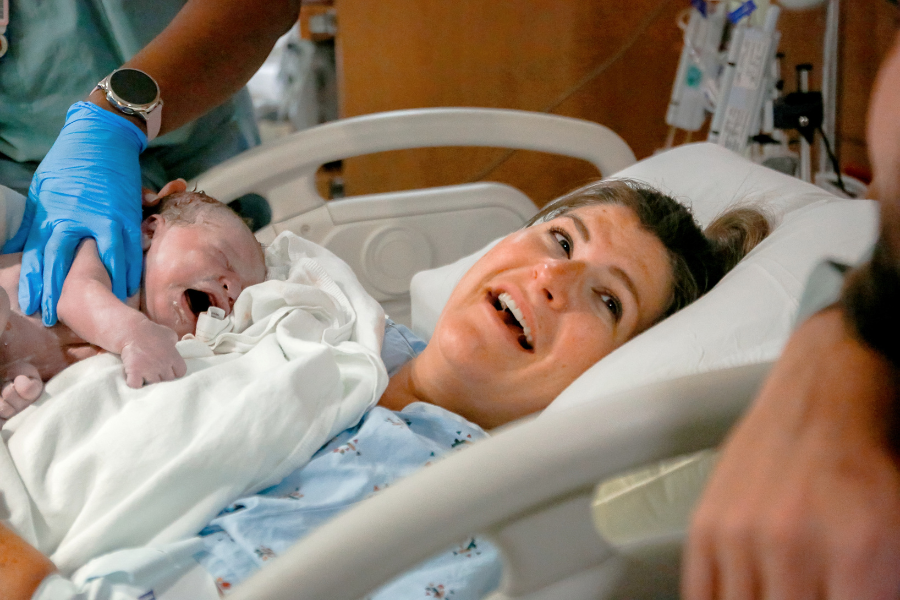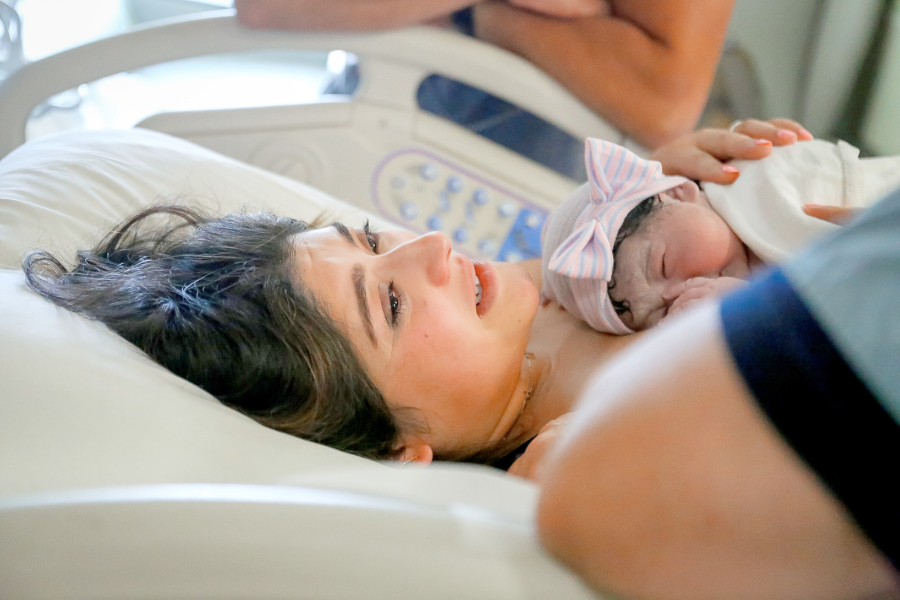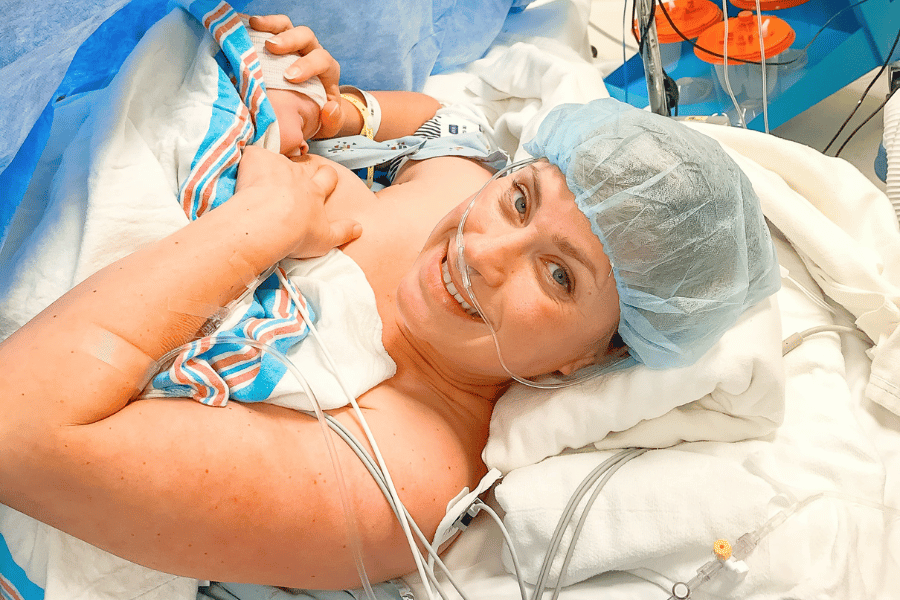Experiencing itching during pregnancy? It might be nothing, but it might actually be a sign of something more serious – so I’m glad you’re here.
During pregnancy, your body goes through so many changes. The changes can be physical, emotional, psychological, or a combination of all three!
It can be really hard, especially if it’s your first pregnancy, to know whether or not something is normal and when you need to notify your provider.
You are probably familiar with the big red flags: vaginal bleeding, severe pain, and decreased fetal movement, but itching isn’t one of those things that we typically think of as being concerning during pregnancy.
Today we’re going to address itching during pregnancy and cover what’s normal and what’s not! So if you’re ready, let’s jump in!
Follow @mommy.labornurse on Instagram to join our community of over 640k for education, tips, and solidarity on all things pregnancy, birth, and postpartum!
Itchy palms and feet during pregnancy
Unless you have personally experienced it or know someone that has – itchy palms and feet in pregnancy have probably never crossed your mind. While not super common, itchy palms and feet can be a symptom of a pretty scary condition called intrahepatic cholestasis of pregnancy, or ICP.
ICP is a condition in which the normal flow of bile is affected by the increased amount of pregnancy hormones. It is most common in the third trimester, when hormones are at their peak, but can occur in other trimesters too.
A blood test, to assess your liver function and bile acids, is typically performed to diagnose ICP.
Your provider can prescribe medication and remedies to help manage the itching, but your bile acid levels should be closely monitored to help determine a delivery timeline.
Additionally, you should be paying extra close attention to your kick counts and daily fetal movement and promptly report anything that feels off to your provider.
What are the risks associated with cholestasis?
Cholestasis can increase risks for fetal distress, preterm birth, or even stillbirth, which is why it’s so, so, so important to be tuned into baby’s movements. Elevated levels of maternal bile can stress baby’s liver, which can lead to complications.
Your provider will develop a delivery timeline with you based on trends of your bloodwork and the overall well-being of baby during monitoring.
If this is all sounding very familiar to you, try not to panic! The majority of women with ICP go on to have perfectly healthy babies, and ICP typically resolves within a few days after delivery.
Always mention your itchy palms and feet!
Moral of the story: don’t ever hesitate to speak up! Itchy palms and feet seems like something so silly and simple, but bringing it to the attention of your provider and intervening early can truly help save your little one’s life.
And if your provider isn’t listening to you or taking you seriously, don’t accept no for an answer. Demand having your blood checked for ICP and/or look for a new provider.
Related Listen: EP30: Don’t Worry About Being THAT Pregnant Lady, It Might Save Your Baby!
Itchy belly during pregnancy
Now this is one you might be a bit more familiar with, especially if you have experienced pregnancy before or you’re a good way into your first pregnancy.
More than likely, an itchy belly during pregnancy is related to your skin stretching as your belly grows throughout pregnancy.
The stretching of skin is to blame for those oh-so-common and oh-so-lovely stretch marks that a lot of us develop during pregnancy. As the skin stretches, it’s also easier for it to dry out, which contributes to the itching.
But don’t forget – any amount of itching, any place on the body, is worthy of bringing to the attention of your provider. While ICP is most common in the hands and feet, it doesn’t have to be limited to just those spots.

How to manage your itchy belly?
My biggest piece of advice is to hydrate and moisturize your skin! I actually started rubbing stretch mark cream on my belly in my first trimester! I hadn’t even started showing yet but wanted to get into a good routine of lathering up each day.
Now, cream or lotion alone isn’t going to prevent your skin from stretching – unfortunately, there’s nothing that can do that. But it can help prevent you from developing stretch marks and keeping the itching at bay!
Related Reading: Looking For The Best Stretch Mark Cream During Pregnancy? My Top Ten Faves!
Pregnancy itching: PUPPPs
If the itchiness on your belly resembles more of a rash than stretch marks, be sure to ask your provider about pruritic urticarial papules and plaques of pregnancy (PUPPP).
PUPPP typically appears as red hive-looking bumps, making it easy to differentiate from stretch marks. The bumps typically originate in the stretch marks on your belly and then spread to other parts of the body.
More common in the third trimester, PUPPP is diagnosed via a blood test. Oatmeal baths, creams, and antihistamines might help lessen the side effects associated with PUPPP but the ultimate “cure” for it is giving birth.
Vaginal itching during pregnancy
Your belly isn’t the only thing undergoing “changes” during pregnancy. Changes with your vagina, most notably an increase in vaginal discharge, vaginal swelling (more common towards the end of pregnancy), and vulvar varicosities are pretty common also.
Typically, minor vaginal itching during pregnancy isn’t anything to worry about. Pregnancy can alter the pH balance in your vagina, which, coupled with an increase in cervical mucus, can lead to itching.
Why you should bring it up to your provider
The reason that it’s important to bring up anything that’s more than minor vaginal itching is that it could be a symptom of a vaginal infection that might require treatment.
As I just stated, pregnancy hormones can throw off the pH balance of the vagina. This can also make you more susceptible to something called bacterial vaginosis or BV.
Treating BV, and any other kind of infection for that matter, is extra important during pregnancy. Untreated infections during pregnancy can increase your risk of preterm labor.
Other potential causes for vaginal itching during pregnancy include yeast infections and sexually transmitted diseases (STDs).
These infections will likely require treatment with antibiotics or antifungal medications to ensure they clear up and don’t cause further complications.
Itchy nipples and breasts during pregnancy
Remember earlier when I said that an itchy belly in pregnancy can be caused by your skin stretching? Well, guess what? The same thing can happen in your breasts!
Another potential cause for breast and nipple itching during pregnancy is increased blood flow to the area. Your blood volume actually increases by almost 50% during pregnancy. The increased blood flow to your breasts might cause dark veins on your breast, enlargement, tingling, and itching.
Finally, hormones might also be to blame for itchy nipples and breasts during pregnancy. Basically, when all else fails, just blame it on the hormones.
The bottom line on itching during pregnancy
If you don’t take away anything else from this article, I want you to remember this: when in doubt, bring it up with your provider!
There are very few people that would experience itchy palms during pregnancy and automatically think it might be something serious and potentially life-threatening for your baby.
And even though itching in places other than your palms and feet can be normal and expected, I still encourage you to bring it to your provider’s attention.
And should your provider brush you or your concerns off, put your foot down and demand to get tested!
I hope this article was helpful and you learned a little something about itching during pregnancy! Here are some additional MLN resources to help you navigate your pregnancy and prepare for birth:





